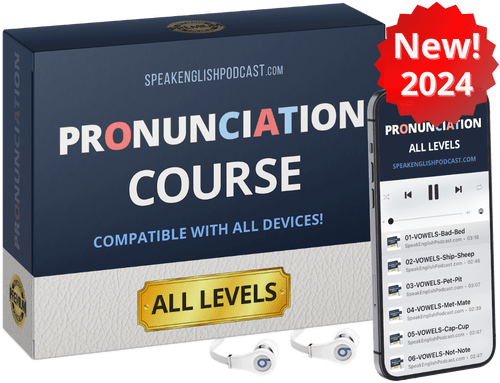Listen to a new episode of Speak English Now Podcast, your favorite material for practicing your spoken and heard English. You will also learn about lifestyle and culture, language, vocabulary, and how to improve your English more effectively.
Transcript:
Hi, everybody! I am Georgiana, your English teacher and founder of SpeakEnglishPodcast.com. My mission is to help you speak English fluently.
– Do you know how to express probability in English?
Probably, but just in case, let’s practice with some basic expressions.
In the second part, we will practice fluency with a short mini-story of questions and answers.
You can get the transcript of this episode and more at Speakenglishpodcast.com.
Very good. When we talk, we usually say things that are true, or at least we believe them to be true. For example, “it’s cold today,” but we can also say things that we don’t know one hundred percent if they are true.
In today’s episode, we will learn some phrases and words used to express probability. I’m sure you already know some of these expressions, and seeing them with some examples will help you consolidate them. The key is to hear them in context and over time, repeating them several times. Don’t try to learn them all in one day.
Since these expressions are used a lot, it will be easy to remember and use them.
Imagine the following situation: Someone doesn’t know where the keys are.
Example:
– Where are the keys? I have to go out, and I can’t find them.
- They might be in the room.
- They may be in the room.
- They could be in the room.
See? “They might/may/could be in the room” indicates an assumption, a certain probability. You think they are, with some probability, in the room when you say, “they might/may/could be in the room.”
Note that if you say: “They are in the room,” this means that you know for sure that they are there, but if you say “they might/may/could be in the room,” then it is a probability.
Let’s learn now how to make guesses about the past.
Here we’ll use may have, might have, or could have.
Examples:
“I didn’t receive your invitation. It may have got lost in the mail.”
“It’s late. Your sister might have arrived by now.”
“Where is she? She could have got lost.”
Note that if you say:
“In the summer, it could be very hot here.”
This means that sometimes it can be very hot in the summer. Here we use “could” to make general statements about the past.
But if we use may have, might have, or could have, then it is a probability in the past.
(END OF THE EXTRACT)
Resources:
- Audio MP3 (right-click to save the audio)
- DOWNLOAD PDF (right-click to save the TEXT)



0 Comments